Main Takeaways:
- Saying “hope you are well“ isn’t incorrect, but there are better options available.
- Try being upfront, and get right to the meat of your message.
- Start or end with a personalized question or comment.
- Offer a compliment to help warm up your audience.
- Refer to current events to find common ground and establish rapport.
Who hasn’t received an email or letter signed with the ubiquitous, “Hope you’re well”? Modern communication is full of similar phrases, but just because they’re common doesn’t mean they’re high quality.
The problem with “hope you are well” is that it doesn’t mean much. Words should have an impact. Why stick with small talk when you can use your energy and space to convey more significant ideas?
Here are some alternatives to “I hope you’re doing well” and comparable phrases to help you stand out from the crowd.
Is it Correct to Say “Hope you are Doing Well?”
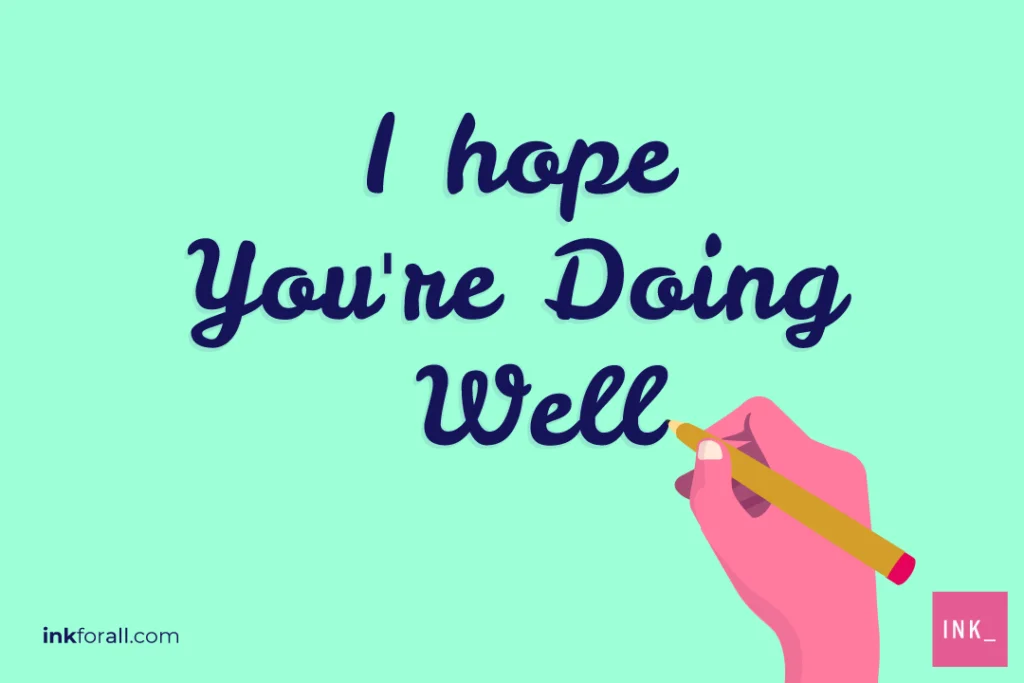

What can I say Instead of “Hope You Are Well?”
If you’re opening an email with “hope you are well” or using it in your subject line, it’s time to rethink your approach. Try cutting to the chase. Be succinct. Have an offer your audience might be interested in? Lead with that. Need to ask a favor? Explain what you need and how it could benefit both parties.
Busy people don’t want to wade through platitudes to get to the point. Help them so they can help you.
Get Personal
“I hope you’re doing well” may be well-intentioned, but it’s impersonal. That’s likely why it’s popular; you can say it to almost anybody, whether you know anything about their lives or not. If possible, get into specifics to add warmth and authenticity to your correspondence.
“Personal” doesn’t always have to mean discussing someone’s family or private life, either.
The key here is to straddle the line between approachable and overly familiar carefully. Avoid referencing topics that might make the recipient uncomfortable (e.g., repeating gossip). Instead, lay the groundwork that you can gradually use to build a rapport.
Start with a Compliment
Studies show that compliments can increase everything from positivity in relationships to professional performance. Why? Because compliments make you happy. That can be a powerful emotion to offer someone, even if it’s just in an email. Swap out “hope you have been well“ with something that makes the recipient feel good.
Never lie. Many people can spot insincerity from a mile away. Be true to yourself, because the last thing you want to do is inspire distrust.
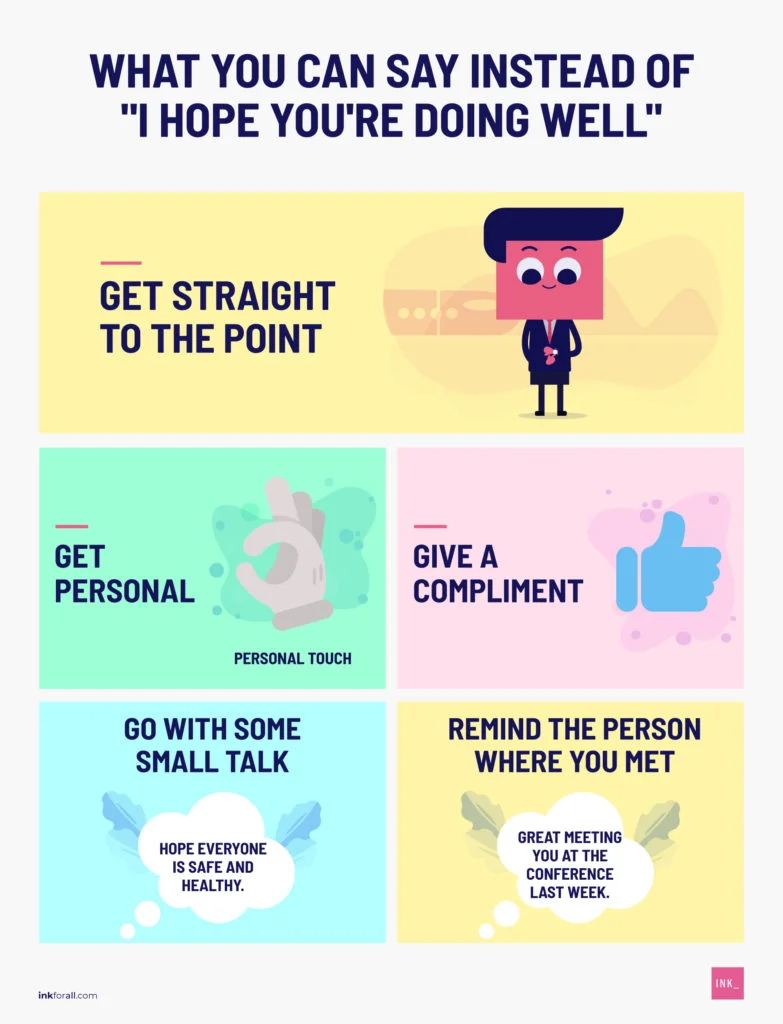

Go With Something Topical
Prove you’re not a bot by kicking off your communications with something tied to current events. Nothing controversial—even the weather will work if you phrase your comment or question correctly.
This approach can be especially useful when “hope you’re well!” is particularly tone-deaf. During the COVID-19 pandemic, for instance, saying you hope your audience is well could come across as insensitive. Instead, if you must mention a touchy subject, ask how they’re doing rather than assuming.
When in doubt, put yourself in the recipient’s shoes. Are you intrigued by what you’re reading, or are you tempted to dismiss it as more of the same? Standing out (for the right reasons) can be the difference between getting your message out and losing your reader’s attention.
Quick “Hope you are Well” Mastery Quiz
Hope you are Well Question #1
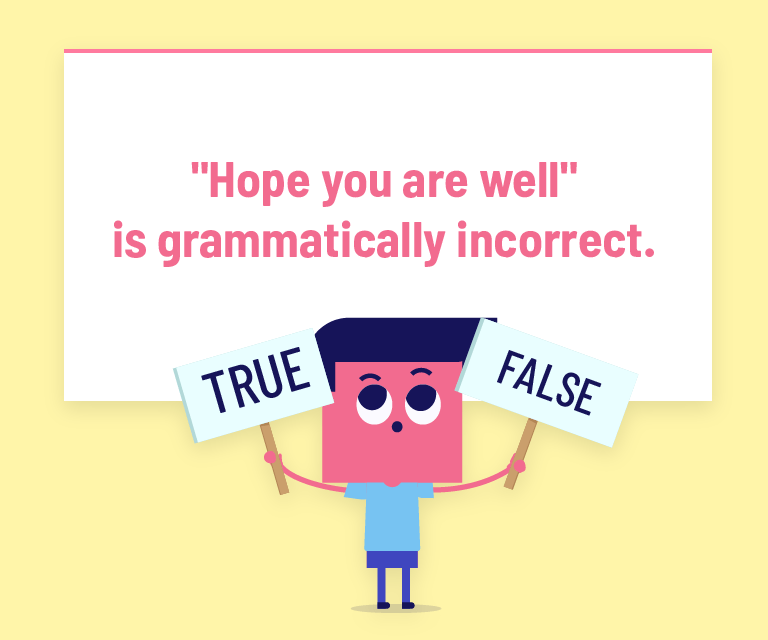

The answer is FALSE. Although "hope you are well "is grammatically correct, there are better options.
Hope all is Well Question #2
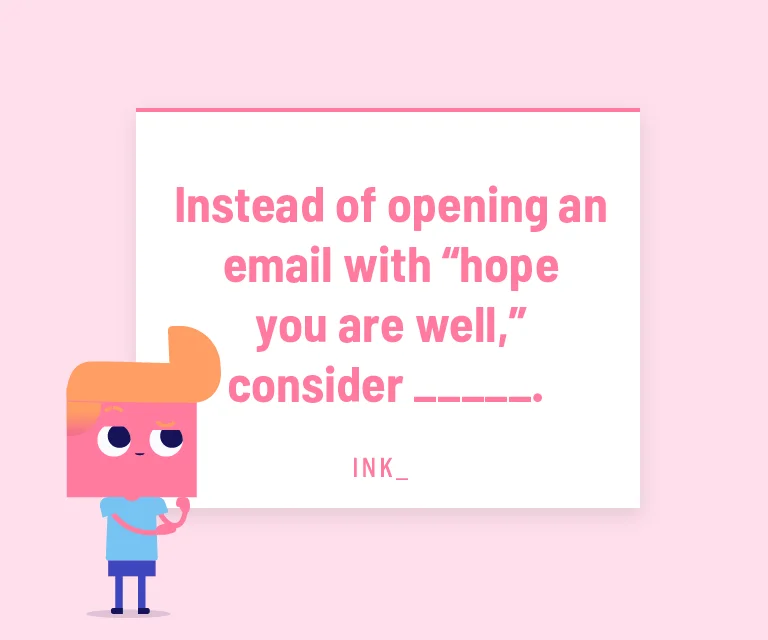

The answer is A. Lead with the reason for writing the email in the first place.
Hope You're Doing Well Question #3
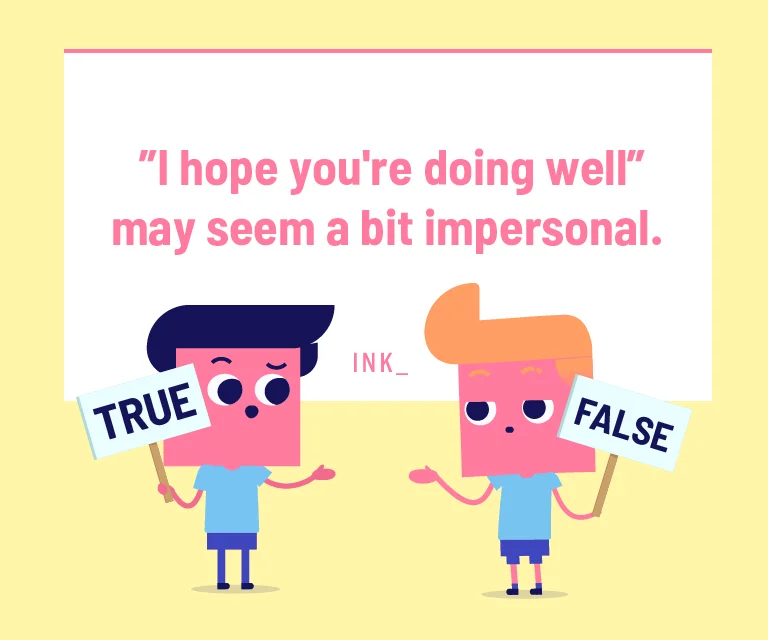

The answer is TRUE. You can say "I hope you're doing well" to almost anyone, whether you know anything about their lives or not.
I Hope You're Well Question #4
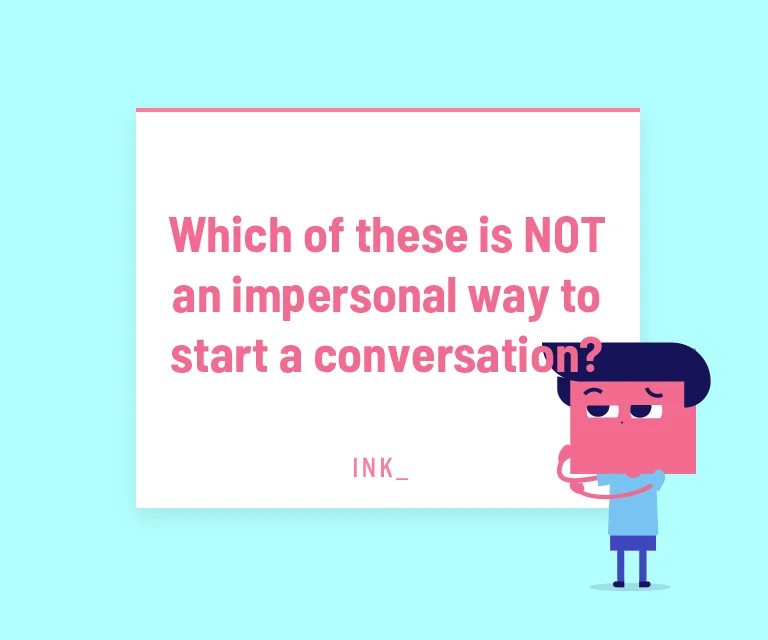

The answer is D. You can use any of these options instead of "I hope you're well."

Dude, this was so helpful. Came across your post searching for something COMPLETELY unrelated, but this hit home. I’m so sick of every one of my emails starting this way. I’m in sales, so getting to the point often feels rude. (Hi Mary, do you have my purchase order yet?) These are really helpful ideas. Thanks for the help practicing fundamentals!
Hey, Danny! Thank you for taking the time to leave such a gracious comment. I’m touched! I agree, balancing a professional yet sincerely approachable tone is difficult in written communication. Now that more and more of our work, school and just our lives in general are shifting online, these small phrases are more important than ever. They can make a big difference in adding that personal or human touch we’re all missing right now. Thank you again for your comment! Cheers to your future emails.